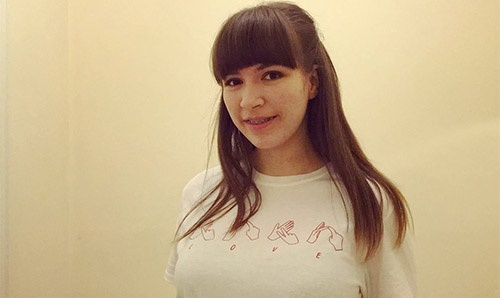Eleanor Hall
Why did you choose to study Music at The University of Manchester?

One of the main reasons I chose the University of Manchester was actually for the city itself.
One of the main things that attracted me to the Music course at The University of Manchester was the number of performance activities available. Coming from a performance-oriented background, I wanted to study somewhere that would allow me to continue to perform at a high standard while also focusing on academic work. The course at Manchester was perfect for me, allowing me to specialise in performance throughout the course and giving me the opportunity to work with teachers of a very high standard.
What has been the highlight of your course so far?
The best module I’ve done at university was the ‘Participatory Music Practitioner’ course. This module was designed to teach us all the necessary skills and theory behind becoming a successful participatory music practitioner, which we then got to exercise through a practical placement in a local setting with experienced practitioners. I really enjoyed the hands-on nature of this module and loved that we got to put all our reading into practice.
In my 2nd year, I was able to study the British Sign Language module offered by UCIL, which gave me the opportunity to learn a new skill as part of my degree, something I really enjoyed. I was then able to apply the BSL I had learnt to my Participatory Music placement, which became incredibly valuable.
Have you undertaken any placements or internships?
As part of my ‘Participatory Music Practitioner’ module, I was allocated to a six-week placement as a hospital musician in the Royal Manchester Children’s Hospital. This placement saw me and a partner attend the RMCH each week and work alongside experienced practitioners from the LIME Music for Health organisation to make music for children in the hospital. The placement allowed us to be mentored by experts while also taking the lead in our sessions, learning a huge variety of ways in which music can be beneficial and how to work effectively in this setting. I learnt a lot of skills from this placement in things such as communication and observation. This placement also prepares for if you choose to follow this pathway for a career, giving you real-world contacts and skills which enhance your employability in this field as well as more broadly. Personally, I’m hoping to use my experience and what I have learnt to apply to outreach schemes run by professional arts organisations in the future, as I’m aiming to have a career in arts administration and would love to run the outreach programme of a professional orchestra someday.
Are you involved in any extracurricular activities?
I spent this past year as the Head Concert Manager for the Manchester University Music Society (MUMS). I’ve been an active member of MUMS since I first joined the university, becoming more involved in the workings of the society each year. In my 2nd year, I became a Concert Manager and uncovered my passion for arts administration. Naturally, I decided to pursue this and applied to become the Head Concert Manager for my final year of university. This role placed me as the primary point of contact for all MUMS concerts run throughout the year and relied on me to maintain effective communication with everyone involved and efficiently manage people to ensure everything could run smoothly. I’ve found that my MUMS positions developed skills I may otherwise not have managed to cultivate, and I have been lucky to develop these while working in roles I have really enjoyed.
